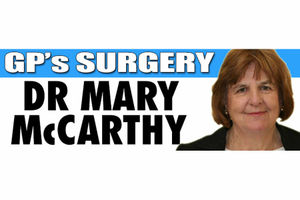Dr Mary McCarthy: Hunt is forgetting funds for care in his new scheme to diagnose dementia
The Secretary of State for Health announced a new initiative this week. Not a renegotiation of the junior doctors' contract nor a rescue package for the looming crisis in general practice, but a screening programme for people over 40 years of age which will look for early signs of dementia.

The statistics for dementia compiled by the Alzheimer's Society suggest that there are just over 800,000 people, mostly over 65 years of age, with dementia in the UK. There is a correlation with advancing age so it is suggested that as the population gets older so the numbers of people with dementia will increase.
Screening is a specialised and expensive tool that is used in very specific circumstances and there are internationally agreed criteria for starting a screening programme. It must be a health problem with an early stage that is easily detected, and treatment at an early stage must be beneficial. A suitable test should be available and acceptable to the population with a set time for repeating the test, and adequate funds and resources should be made available for the extra clinical workload. The risks, both physical and psychological must be less than the benefits, and the costs must be balanced against the benefits.
This proposal seems to fall down on several counts. We don't have a reliable screening test for early dementia. In fact forgetfulness seems to be a human characteristic rather than a failing.
Research was carried out in a US university some years ago to determine forgetfulness in older people. The study group consisted of nursing home residents all over 75. The control group (to see what the normal range would be) were medical students whose ages ranged from 22 to 25.
The finding, somewhat to the researchers' surprise, was that both groups forgot frequently but when the medical students left their keys behind they would be annoyed and go back to get them. When the older people forgot they would worry that they had memory problems.
We already know and have diagnosed significant numbers of patients with dementia and our difficulty is caring for this community. It is not the diagnosis that is the problem but the social care needed to support these patients and their families, which is sadly missing.
Funds and resources in social care and mental health have been cut repeatedly. We need funds to help manage the problem we have without spending money on diagnosing dementia in a younger group where the incidence of the problem is much lower.
Aspirations to make the UK the foremost country for managing dementia in the world, as Jeremy Hunt has stated, are laudable but first it would be better to make sure that we can deliver basic care at an acceptable and safe clinical level.




